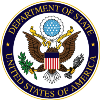Exchanges Are Strengthening Communities Today More Than Ever
By: Evan Ryan, Assistant Secretary of State for the Bureau of Educational and Cultural Affairs.
So many of the challenges we face, especially those that seem the most intractable, are deeply rooted in cultural and societal values, in beliefs and traditions — think about such complex global issues as the destruction of humanity’s cultural heritage or the threat of violent extremism.
To make progress on these and other complex international issues, it takes more than government to government diplomacy. The impact of individuals — and communities — plays a monumental role in shaping the perceptions of our country, whether through trade, art, music, food, or sports. In this endeavor we are making real progress. We have been hard at work building more flexible, rapid response elements to support foreign policy priorities, such as expanded Access English programs to address the refugee crisis in Syria and partnering with Bloomberg Philanthropies to address climate change at a local level.
As I depart the State Department following more than three years of seeing the impact of people-to-people exchange firsthand every day, I want to stress how important these programs are to setting the tone for a future where we are all more globally minded.
Youth Exchanges
Currently, the majority of all State Department-sponsored exchange participants are under the age of 30. This is not a coincidence. Building off the strength of our high school and higher education exchange programs, we have created a series of new programs to reach emerging leaders. Known as the Young Leaders Initiatives, these regional programs for Africa, Latin America, Southeast Asia, and Europe foster the spirit of civic activism and participatory dialogue that are the best ways to counter intolerance and radicalism, while creating real understanding. All of them have a multiplier effect, allowing hundreds of thousands of youth to participate and engage, even when they cannot attend a traditional exchange program.
Countering Violent Extremism
Violent extremism is our country’s most urgent priority. Exchange programs have a substantial contribution to make, and exchanges do so much to spark ideas and create a world that rejects violence and extremism. The “P2P: Challenging Extremism” program has become a model for public-private partnership, through a partnership with Facebook, as well as universities around the world. And many, many other exchange programs continue to share the message of tolerance, the need to empower people, and the idea that no matter our differences, we can always find common ground.
Cultural Heritage Preservation
The Bureau of Educational and Cultural Affairs has long been the leader in the U.S. Government’s efforts to protect and preserve humanity’s shared heritage through programs like the U.S. Ambassadors Fund for Cultural Preservation, the Cultural Antiquities Task Force, and U.S. implementation of the 1970 UNESCO Convention. Our expertise and international network of partners has become more vital in recent years as the world confronts the systematic looting and wanton destruction of cultural heritage by violent extremists and criminal enterprises. When cultural heritage sites and artifacts are lost, it is felt within the local community, and the nation at large, because cultural heritage plays an integral role in economic development through sustainable tourism and in building identity and a sense of place.
Building International Capacity among Americans
Our higher education institutions are key players in America’s international leadership — central to innovation, economic development and opportunity, to the internationalizing of campuses and the development of global linkages to tackle global challenges. When Americans go abroad, they make connections that broaden their worldview and horizons, and they become part of an international network. Most people I talk to say that international education helped them to see themselves as leaders in our global world — in a way they never did before.
We are heartened that more Americans than ever are studying abroad.
By working with partners in the United States and overseas — and through programs like the Fulbright, Critical Language, and Gilman Scholarships — we are increasing the number of American students from diverse backgrounds and areas of study that go abroad. I would be remiss if I did not mention the thousands of American citizen diplomats in all 50 states who host or meet with exchange participants every day of the year, inviting them into their homes and businesses, all in the name of global understanding.
These are a few of the many ways that educational and cultural programs are providing opportunities for individuals to learn from one another, access resources, network with colleagues in other disciplines, and ultimately to accomplish remarkable things in their home communities, now and for many, many years to come.
